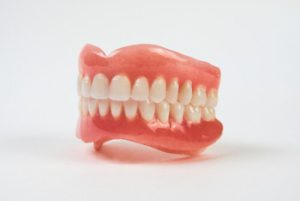When faced with the need to replace missing teeth, one of the most common questions people have is, “How much do dentures cost?” Dentures are a versatile and cost-effective solution to regain both function and aesthetics to your smile. Whether you’re considering complete dentures, partial dentures, or even fixed dentures, understanding the costs and options is essential.
In this article, we’ll explore the factors influencing denture costs, the types of conventional dentures available, and what you can expect during the denture process.
What Are Dentures, and Why Are They Needed?
Dentures are removable dental prosthetics of false teeth created to replace missing teeth and restore the natural appearance of your smile. They can improve your ability to eat, speak, and preserve oral health by preventing issues like tooth decay, gum disease, and bone loss. Dentures are particularly helpful for individuals who have experienced significant tooth loss or have had all their teeth removed.
Who Needs Dentures?
Dentures are ideal for people who:
- Have experienced significant tooth loss due to ageing, injury, or dental conditions.
- They are missing all their teeth and require complete dentures.
- Need to replace only a few missing teeth with partial dentures.
What Influences Denture Costs?
Several factors determine the cost of dentures, including:
- Type of Dentures
- Complete Dentures: Replace all teeth in the upper or lower jaw.
- Partial Dentures: Replace one or more missing teeth while keeping the remaining natural teeth intact.
- Hybrid Partial Dentures: A combination of acrylic and metal for durability and comfort.
- Material Quality
- Acrylic Dentures: Affordable and lightweight.
- Chrome-Plated Dentures: Durable and long-lasting.
- High-Quality Dentures: Offer superior aesthetics and durability.
- Additional Dental Services
- Tooth Extractions or tooth removal before fitting.
- Denture Repairs if dentures break or become ill-fitting.
- Denture Relining for a better fit over time.
- Dental Professional Expertise
- Services by an appropriately qualified health practitioner typically charge more.
Types of Dentures and Their Costs
When considering dentures, understanding the available options and their costs is critical for making an informed decision. From affordable acrylic dentures to durable fixed dentures, there’s a solution for every budget and dental need. Here, we break down the main types of dentures, their features, and starting prices to help you find the right fit for your smile.
Complete Dentures
These are ideal for individuals who have lost all their teeth in either the upper or lower jaw, providing a complete replacement solution.
Starting Price: 1,500 AUD per arch
Partial Dentures
These fill gaps by replacing one or more missing teeth while keeping the remaining teeth intact.
Starting Price: 700 AUD
Fixed Dentures (Implant-Supported)
These provide long-term stability by attaching to dental implants for a natural look and feel.
Starting Price: 15,000 AUD per arch
Acrylic Dentures
Lightweight and cost-effective, these are ideal for those looking for an affordable solution.
Starting Price: 800 AUD
Chrome-Plated Dentures
Known for their durability, these have a metal base to withstand wear and tear.
Starting Price: 1,500 AUD
Each type of denture offers unique benefits, so consulting with an appropriately qualified health practitioner can help determine which option suits your needs and budget.
What to Expect During Denture Treatment
The journey to getting new dentures involves several stages:
Initial Consultation
- Your dentist will check your oral health and discuss the options to suit your needs and budget.
Tooth Extractions and Healing
- If tooth removal is needed, a healing process of a few weeks is typically required before fitting permanent dentures.
Impressions and Fitting
- Impressions of your mouth cavity are taken to create customised dentures.
Adjustments and Relining
- After receiving your dentures, adjustments may be needed to ensure a comfortable fit.
Ongoing Maintenance
- Regular check-ups and denture relining help maintain a good fit and prevent uncomfortable dentures.
Caring for Your Dentures: Maintenance and Tips
Proper care is essential to keep your dentures in excellent condition and ensure they remain comfortable and functional. By following a consistent maintenance routine, you can prolong their lifespan and prevent common issues such as staining, odours, or breakage. Here’s a simple guide to help you care for your dentures effectively.
Daily Cleaning Routines Using a Non-Abrasive Denture Cleaner
Proper cleaning prevents staining, bacterial growth, and odours. Use a non-abrasive denture cleaner to protect the surface and avoid scratches.
Best Practices for Wearing Dentures Overnight
Wearing dentures overnight is generally discouraged unless advised by your dentist. Soaking them in a denture solution for the recommended time helps maintain their shape and hygiene.
Preventing Common Issues Like Staining or Odours
Avoid foods and beverages that cause staining, such as coffee or red wine. Rinse dentures thoroughly after eating and keep them clean to eliminate odours.
What to Expect During the Healing Process
The healing process after receiving dentures or undergoing related procedures, such as tooth extractions, is a crucial step in achieving a comfortable fit and optimal functionality. Knowing what to expect during this time can help you prepare and ensure a smooth recovery. Here’s an overview of the timeline and tips to manage the adjustment period.
Timeline for Recovery After Tooth Extractions
After tooth extractions, it may take several weeks to months for your gums and mouth cavity to heal completely.
Adjusting to New Dentures and How to Manage Discomfort
It may take a few weeks to get used to new dentures. Eating soft foods and practising speaking at home can help you adapt more quickly.
Follow-Up Care and Monitoring by Your Dentist
Regular follow-ups with your dentist ensure that your dentures remain comfortable and functional as your oral structure changes over time.
Financing Options for Dentures and Dental Treatments
Dental treatments, including dentures, can be a major investment. Fortunately, multiple financing options are available to make these procedures more accessible. Whether you need partial dentures, full dentures, or ongoing denture repairs, the following payment solutions can help you manage the costs effectively.
Afterpay
Afterpay allows you to split the cost of your treatment into manageable, interest-free payments. With this option, you can start your denture treatment or other dental procedures right away and pay in instalments over time. It’s a flexible way to cover costs without a large upfront payment.
Humm
Humm offers a “buy now, pay later” solution tailored to healthcare needs, including dental treatments. You can choose from smaller, interest-free payments or larger plans with low interest rates for more expensive procedures like fixed dentures or dental implants.
HICAPS
If you have private health insurance, HICAPS enables on-the-spot claims for eligible dental treatments. This convenient system allows you to only pay the gap, reducing your out-of-pocket costs for services such as tooth extractions, denture relining, or new dentures.
Medicare
For certain individuals, Medicare may offer assistance with specific dental treatments. While it generally does not cover traditional dentures or dental implants, you may qualify for benefits under specific programs, such as the Child Dental Benefits Schedule (CDBS) or emergency dental care.
Veterans Vouchers and Veterans Affairs
Eligible veterans holding DVA cards can access dental treatment as part of their benefits. This option provides comprehensive coverage for a range of services, from tooth removal to the creation of dental prosthetics like dentures. To confirm your eligibility, contact Veterans Affairs directly.
Finding the Right Option for You:
Each financing option is designed to make dental care more affordable and accessible. Speak with your dentist to explore which options best suit your needs and eligibility. Investing in your oral health doesn’t have to be a financial strain, thanks to these flexible payment solutions.
Common Problems with Dentures and How to Solve Them
Ill-Fitting Dentures: Causes, Adjustments, and Relining
Ill-fitting dentures can cause discomfort, difficulty speaking or chewing, and even irritation of the gum tissue. Common causes include changes in the shape of your mouth cavity over time, natural bone resorption after tooth loss, or poorly fitted dentures from the start.
Solutions:
- Adjustments: Minor tweaks by your dentist can improve the fit.
- Denture Relining: A professional reline adds material to the denture base to better match your current mouth structure.
- Replacement: If adjustments aren’t sufficient, new dentures may be required.
Uncomfortable Dentures: How to Improve Fit and Comfort
Discomfort is a common issue, especially with new dentures. Causes can range from pressure points to the material used in the dentures.
Solutions:
- Use a denture adhesive to provide additional stability.
- Visit your dentist for adjustments or relining if discomfort persists.
- Ensure proper cleaning to avoid bacterial build-up that could irritate your gums.
Broken or Damaged Dentures: Repair Options and Prevention Tips
Dentures can typically break or crack if dropped or due to normal wear and tear. Chips or cracks in acrylic dentures or chrome-plated dentures can lead to poor functionality and discomfort.
Solutions:
- Denture Repairs: Your dental clinic can often repair minor damage within a day.
- Preventive Measures: Handle dentures carefully, avoid biting on hard objects, and store them safely when not in use.
Why High-Quality Dentures Are Worth the Investment
Improved Functionality for Eating and Speaking
High-quality dentures are designed for optimal performance, allowing you to chew food efficiently and speak clearly without worrying about slipping or discomfort.
Enhanced Appearance and Confidence
With advancements in denture technology, high-quality dentures can mimic natural teeth so well that they’re virtually indistinguishable, giving you a confident smile.
Long-Term Cost Savings with Durable Materials
Investing in durable materials like chrome-plated dentures or high-quality acrylic ensures fewer replacements and repairs, saving you money in the long run.
Comparing Dentures with Other Tooth Replacement Options
When considering solutions for tooth replacement, it’s essential to weigh the benefits and drawbacks of dentures against other options like dental implants and bridges. Each choice offers unique advantages depending on your dental needs, budget, and lifestyle. Here’s a closer look at how dentures stack up against these alternatives.
Dentures vs. Dental Implants: Pros and Cons
Dentures:
- Affordable and non-invasive.
- It may need replacement or adjustments over time.
Dental Implants:
- Long-lasting and stable.
- Higher upfront cost and involves a surgical or invasive procedure.
How Partial Dentures Compare with Bridges
- Partial Dentures: Removable, cost-effective, and easy to replace if damaged.
- Bridges: Fixed and more natural-looking but may require altering healthy teeth.
Choosing Between Chrome-Plated Dentures and Acrylic Dentures
- Chrome-Plated Dentures: Durable, lightweight, and less likely to break.
- Acrylic Dentures: Affordable, easier to adjust, but less durable.
Debunking Myths About Dentures
Myth: Dentures Are Only for Older Adults
While dentures are common among seniors, they’re also suitable for younger individuals who’ve experienced significant tooth loss.
Myth: Dentures Look Unnatural
Modern dentures, especially high-quality ones, are designed to mimic natural teeth in appearance and functionality.
Myth: Dentures Are Uncomfortable and Hard to Maintain
With proper fitting, regular adjustments, and diligent cleaning, dentures can be comfortable and easy to care for.
Common Questions About Dentures
Can dentures replace all missing teeth?
Yes, complete dentures replace all missing teeth in one or both jaws, while partial dentures fill gaps between remaining teeth.
Are dentures permanent?
Dentures can be temporary or permanent, depending on your treatment plan. Fixed dentures provide a long-term solution but involve dental implants.
Are dentures uncomfortable?
Well-fitted dentures are typically comfortable. However, ill-fitting dentures may cause discomfort and require adjustments.
What are dentures made of?
Dentures are typically crafted from durable materials like acrylic, metal (chrome-plated dentures), or a combination of both. High-quality dentures use advanced materials that closely mimic the appearance of natural teeth.
How long do dentures last?
On average, dentures last 5–10 years. Proper care and regular adjustments can extend their lifespan. However, changes in your gum tissue and mouth cavity may necessitate relining or replacement.
Are dentures covered by private health insurance?
Many private health insurance plans provide partial coverage for dentures under extra policies. The exact benefit depends on your insurance provider and level of coverage.
Can dentures be worn overnight?
While it’s possible to wear dentures overnight, it’s generally not recommended. Removing dentures allows your gums to rest and prevents bacterial growth. If you do wear them overnight, consult your dentist.
How do I clean my dentures?
Clean dentures daily using a non-abrasive denture cleaner and a soft brush. Rinse them after meals to remove debris and store them in a soaking solution for the recommended time when not in use.
Can dentures be repaired if they break?
Yes, most broken or damaged dentures can be repaired. Contact your dentist immediately for professional denture repairs.
What should I do if my dentures feel loose?
Loose or ill-fitting dentures can often be fixed with adjustments or denture relining. Avoid using too much adhesive, and consult your dentist.
Are dentures suitable for people with gum disease?
Yes, but gum disease must be treated before dentures are fitted. Untreated gum disease can cause further complications and affect the fit of your dentures.
How long does it take to get dentures?
The process can take 4–6 weeks from initial impressions to the final fitting. If extractions are required, the timeline may be extended due to the healing process.
Can I eat normally with dentures?
Yes, but adjusting may take some time. Begin with soft foods and slowly incorporate harder items into your diet. Well-crafted dentures can enhance chewing effectiveness and overall comfort.
Can dentures cause bad breath?
Improper cleaning of dentures can lead to bacteria build-up, causing odours. Regular cleaning and soaking in a specific denture solution can prevent this.
Are there alternatives to dentures?
How often should I visit the dentist with dentures?
Regular dental check-ups (every 6–12 months) are essential for monitoring your oral health, ensuring proper fit, and addressing issues like denture relining or repairs.
Can I get dentures if I still have some natural teeth?
Yes, partial dentures are specifically designed for individuals with remaining natural teeth. They fill gaps and restore function while preserving healthy teeth.
How do I choose between acrylic and chrome-plated dentures?
- Acrylic Dentures: Lightweight and affordable, suitable for temporary or standard use.
- Chrome-Plated Dentures: More durable and long-lasting, ideal for those seeking higher-quality, permanent solutions.
Final Thoughts: Investing in Your Smile
Dentures are a huge investment in your oral health and quality of life. Whether you’re considering full dentures, partial dentures, or implant-supported options, it’s essential to work with an appropriately qualified health practitioner to ensure optimal results.
For tailored advice and expert care, contact Southport Park Family Dental at 07 5655 7688 to discuss your options and ensure a healthy smile to enjoy life to the fullest.
References:
- Colgate. (n.d.). Implant-supported denture. Retrieved from https://www.colgate.com/en-us/oral-health/dentures/implant-supported-denture
- WebMD. (n.d.). Slideshow: Dentures and implants. Retrieved from https://www.webmd.com/oral-health/ss/slideshow-dentures-implants
- MedlinePlus. (n.d.). Dentures. Retrieved from https://medlineplus.gov/dentures.html#:~:text=Dentures%20are%20false%20teeth%20made,may%20feel%20strange%20at%20first.
- Healthline. (n.d.). Foods that stain teeth. Retrieved from https://www.healthline.com/health/foods-that-stain-teeth
- Cleveland Clinic. (n.d.). Tooth extraction. Retrieved from https://my.clevelandclinic.org/health/treatments/22120-tooth-extraction
- Afterpay. (n.d.). Afterpay Australia. Retrieved from https://www.afterpay.com/en-au








